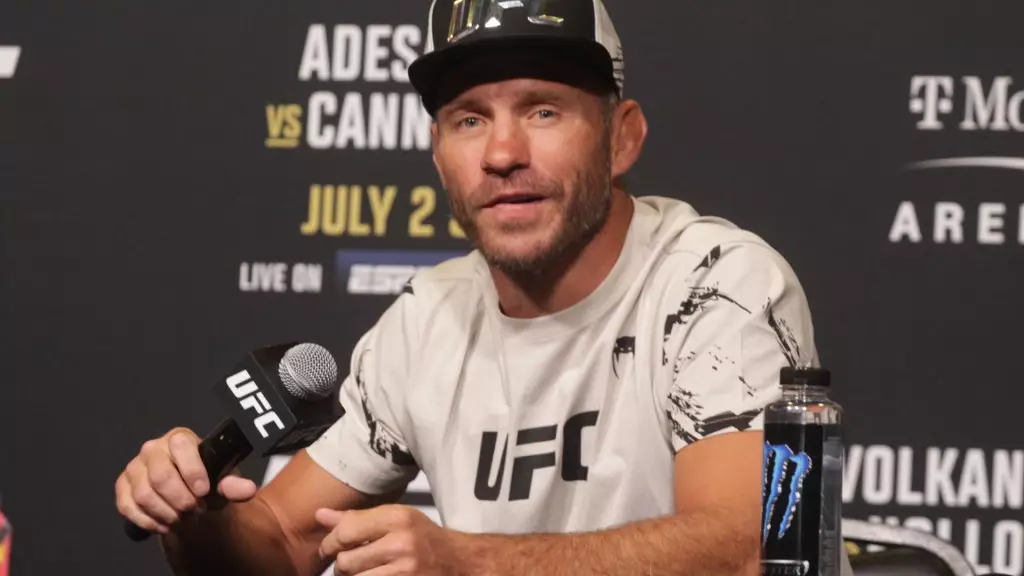The world of mixed martial arts (MMA) has always been riddled with controversies surrounding performance-enhancing drugs. Recently, the focus has shifted to Donald “Cowboy” Cerrone, who, after retiring in July 2022, announced plans to return to the UFC for two more fights. This move has sparked significant discourse, notably from fellow fighter Daniel Cormier, who has openly criticized Cerrone’s previous use of steroids and other performance enhancers during his hiatus. The implications of Cerrone’s return are significant not only for himself but also for the sport at large, particularly regarding the ongoing battle against doping.
At first glance, Cerrone’s impending return may seem like a compelling narrative of a seasoned fighter seeking redemption. However, the context of his departure from the UFC complicates this tale. Cerrone enjoyed a period away from competition during which he was free from the scrutiny and regulations imposed by the Anti-Doping Agency (ADA). During this time, he reportedly utilized testosterone replacement therapy (TRT) and various peptides, substances that are banned in competition. This openness about drug use has garnered mixed reactions from fans and fighters alike, highlighting a divide in how the sport perceives transparency versus accountability.
Cormier’s criticism primarily hinges on the belief that Cerrone’s admissions normalize behavior that many view as unethical. The former champion pointed out that while Cerrone has been candid about his steroid use, the mere act of admitting to such usage raises ethical questions. Should athletes be lauded for transparency if they still employ methods that contradict the spirit of fair competition? This quandary does not just affect Cerrone; it establishes a troubling precedent for new and younger fighters who may now perceive that leveraging performance enhancers could yield acceptable results as long as they are honest about it.
Cormier highlighted what he considers a potential loophole in the system aimed at maintaining fair play in the UFC. Cerrone’s use of performance enhancers during a time when he was not required to adhere to strict regulations creates questions about the integrity of competition. Cormier argues that if Cerrone passes doping tests upon his planned return, it does not erase the advantages gained through prior drug use. This raises an essential ethical issue: does it truly matter if one can pass tests after being subjected to enhancements? The implications are vast, as this behavior could lead to other athletes attempting similar strategies to circumvent testing requirements.
The atmosphere in the UFC is increasingly competitive, with fighters constantly seeking advantages to put themselves ahead. Cormier expressed concern that Cerrone’s approach might encourage other fighters facing injuries or setbacks to remove themselves from drug testing and subsequently return ‘fresh’ and ‘enhanced’—a tactic that is technically permissible but ethically questionable. The fear is that this could create a slippery slope, where athletes prioritize short-term gains over the integrity of the sport itself.
Cerrone’s History and Future: A Critical Look
Cerrone’s last tenure in the octagon was far from stellar; he suffered six losses and experienced one no contest in his last seven fights. The reality is that his performance had waned significantly prior to retirement. As fans anticipate his return, they must grapple with whether Cerrone is truly prepared for competition or merely resting on the laurels of his past achievements while attempting to regain form through questionable practices.
Cormier is not alone in his concerns; many within the MMA community are raised eyebrows over Cerrone’s comeback. The specter of past steroid use lingers over potential fights, and rather than being a spectacle of his skills, matches could be clouded by discussions of fairness and the true state of competition. Fans may find it difficult to invest emotionally in his return if they feel he has not genuinely earned his place back in the octagon.
While Cerrone’s return may be welcomed by some, it also invites heated debates around ethics, transparency, and what it truly means to be a competitor in the UFC. As the lines continue to blur between performance integrity and personal ambition, the ongoing discourse will likely shape the future of mixed martial arts.

